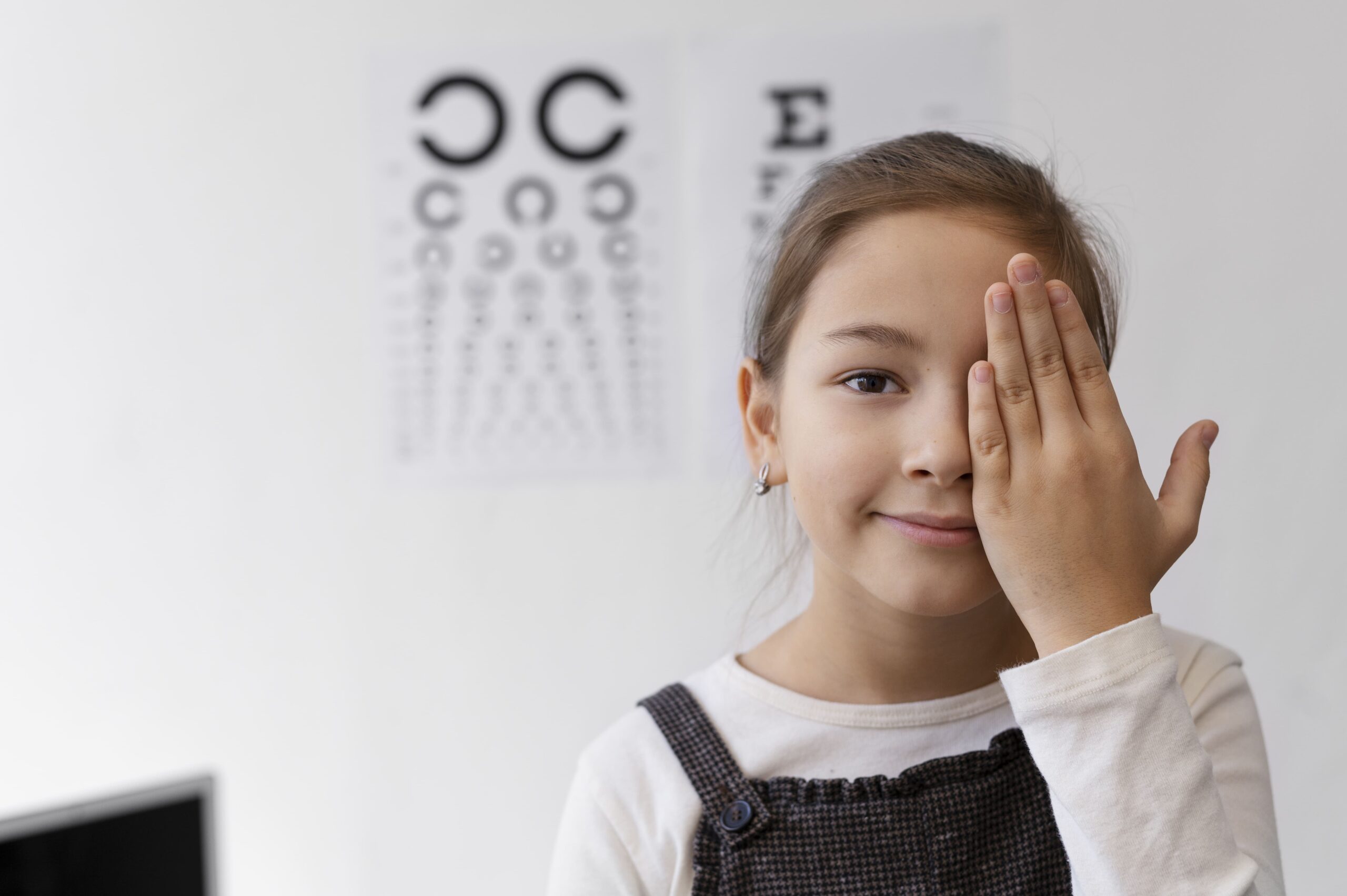
If your child’s eye doctor recently diagnosed them with myopia, you may be wondering what comes next.
At Missouri Eye Consultants, we help families understand how to manage myopia for kids early, before it starts affecting a child’s confidence, school performance, or long-term vision health.
Myopia, also called nearsightedness, is common in children and tends to progress over time. But with the right care, you can significantly slow that progression, helping your child see clearly and keep up in school and everyday activities.
What Is Myopia?
Myopia causes distant objects to appear blurry while nearby objects stay clear. It happens when the eyeball grows too long or the cornea is too curved, which prevents light from focusing properly on the retina.
This condition typically begins in childhood and tends to worsen during the school-age years. If left untreated, high levels of myopia can raise the risk of serious eye conditions later in life, such as retinal detachment, glaucoma, or macular degeneration.
How Do I Know If My Child Needs Myopia Treatment?
Imagine your child sitting in class, squinting to see the board but not saying anything. That’s often how myopia first appears. Even if your child wears glasses, their prescription might change faster than expected. Kids don’t always realize their vision has changed—or how to describe it.
Signs to watch for include:
• Squinting to see distant objects
• Holding screens or books very close
• Frequent headaches or eye strain
• Falling behind in school despite trying their best
If your child has shown any of these signs, it’s time for a pediatric eye exam with a doctor trained in myopia management. Missouri Eye Consultants offers expert care at eight locations across Missouri, using advanced tools to catch and treat vision changes early.
What Are the Treatment Options for Myopia in Kids?
Every child’s needs are different, which is why we offer a range of proven treatments based on your child’s vision, age, and daily activities.
After a full exam and diagnostic imaging, our doctors may recommend one or more of the following:
Orthokeratology (Ortho-K)
These overnight contact lenses gently reshape the cornea while your child sleeps, so they can see clearly during the day without needing glasses or contacts. Ortho-K is ideal for active kids who play sports or prefer not to wear daytime eyewear.
Atropine Eye Drops
Low-dose atropine drops, applied before bed, have been proven to slow myopia progression in children. These drops don’t impact near vision and are a good option for families looking for non-invasive treatment.
Specialized Glasses and Soft Contact Lenses
Optometrists design certain lenses to not only correct vision but also slow the progression of myopia. These look like regular glasses or contacts but work to slow vision changes while correcting eyesight.
Lifestyle and Visual Habits
Good visual habits can support treatment success. We may recommend strategies like reducing screen time, taking regular breaks during reading, or encouraging more time outdoors—based on your child’s unique habits and needs.
Why Choose Missouri Eye Consultants?
Myopia isn’t one-size-fits-all—and neither is our approach. Our doctors use advanced imaging like OCT and Optomap® to monitor changes and adjust care as your child grows. With eight locations across Missouri and a team of experienced, medically focused optometrists, we’re here to offer expert care that’s accessible, reliable, and close to home.
If your child has myopia, we’re here to help you understand what comes next. We’ll answer your questions and create a care plan that protects their sight today and for years to come.
Schedule a consultation today at any Missouri Eye Consultants location, and take the next step toward protecting your child’s vision.
Frequently Asked Questions About Myopia in Kids
How early can myopia start?
Myopia often begins between the ages of 6 and 12 but can develop earlier. The earlier it starts, the more likely it is to progress quickly. Early detection is key.
Will wearing glasses make myopia worse?
No. Glasses correct vision but do not cause myopia to worsen. However, glasses alone do not slow the progression of myopia. That’s why your optometrist may recommend additional treatment options, like Ortho-K or atropine drops.
Can my child outgrow myopia?
No. Myopia typically does not reverse over time. It often stabilizes in early adulthood, but without treatment, the condition can worsen year after year.
Is myopia caused by too much screen time?
While genetics play a strong role, environmental factors matter too. Prolonged near work, including screen time and reading, may contribute to faster progression. Encouraging outdoor time can help counterbalance this.
What risks does my child face if we don’t manage their myopia?
Without treatment, your child may need stronger prescriptions over time and may face a higher risk of developing serious eye diseases in adulthood, such as retinal detachment or glaucoma.
Take the next step toward protecting your child’s vision
If your child has been diagnosed with myopia, you don’t have to navigate it alone. Missouri Eye Consultants is here to guide you with personalized care and proven treatments.
Schedule a pediatric eye exam at one of our eight convenient locations today—and help your child see the world more clearly, now and in the future.
